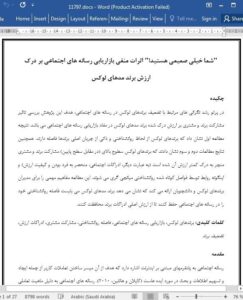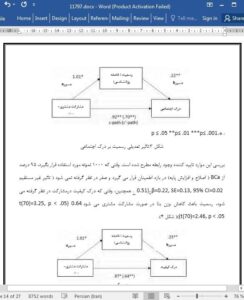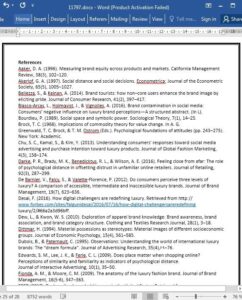Abstract
In light of the growing concern about brand dilution of luxury brands on social media, the purpose of this research was to examine the impact of brand-consumer engagement on value perceptions of luxury fashion brands within the context of social media marketing. The result of Study 1 demonstrated that luxury brands were inherently psychologically distant than mainstream brands. The results of Study 2 and Study 3 showed that a luxury brand with a high level (vs. low level) of brand-consumer engagement resulted lower value perceptions (i.e., social, uniqueness, and quality value perceptions) of the brand, and such relationships were mediated by decreased psychological distance. This research provides important implications for luxury brand managers and scholars that luxury fashion brands should maintain psychological distance on social media to protect the core value perceptions of the brands.
1. Introduction
Social media refers to Internet-based platforms which aim to enable user interactions such as creating and sharing information and discussing ideas (Kaplan & Haenlein, 2010). Social media has become a powerful marketing tool for brand managers because of its interactive nature. Brands engage with consumers on social media by responding to consumers' posts and encouraging user-participation. According to a report by Schneider (2015), leading brands respond to about 60% of consumers' tweets on Twitter. Luxury brands also have increasingly utilized social media to engage in two-way communications with consumers (Kim & Ko, 2012). Among luxury brands, Coach and Karen Millen encourage consumers to upload photos of their products with hashtag on social media and feature consumer photos on their websites. Also, Cartier actively responds to consumers' questions and engages in conversations with consumers on its Facebook brand page.
6.3. Suggestions for future research
Among various dimensions of psychological distance, this study particularly focused on social distance of luxury brands in the context of social media marketing. Specifically, this study demonstrated that active brand-consumer engagement is an important antecedent of social distance of luxury brands that can damage important perceptions of the brands. Along with a social distance dimension, future studies should investigate other factors that may influence other dimensions of psychological distance of luxury brands, such as temporal and spatial distance. For example, some luxury brands on social media frequently provide direct links to their online stores along with product photos to increase both sales and consumer shopping convenience.










